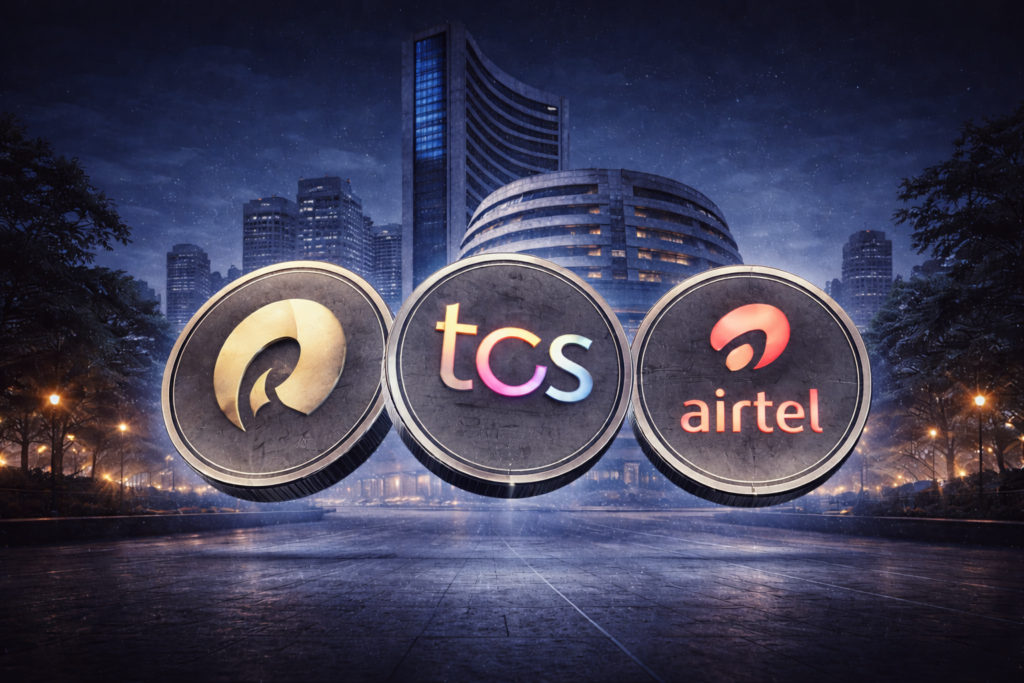The Indian stock market saw a major technological transition in 1996, when “dematerialised” or demat accounts were introduced for trades conducted on the National Stock Exchange (NSE).
A demat account is an electronic account that can “hold” investments such as stocks, exchange-traded funds (ETFs), mutual funds, and commodities. So, instead of receiving and holding physical certificates when you buy such securities, they are dematerialised and held in an electronic form in your demat account. This process of dematerialisation is carried out by a depository participant (DP), which can be a broker, bank, or financial institution.
But what’s the importance of having a demat account? And what is the eligibility for opening a demat account? Read on to find out.
Table of Contents
1. Importance of having a demat account
2. Eligibility criteria to open a demat account
3. Documents and process to open a demat account
4. Start investing in a hassle-free manner
5. Frequently asked questions
1. Importance of having a demat account
Having a demat account is mandatory to invest in stocks according to the Securities and Exchange Board of India’s (SEBI) rules. If you don’t have a demat account, you cannot buy shares because there will be no place to hold them. Thus, having a demat account is not just important but a prerequisite for investing in the stock market.
It’s not mandatory to have a demat account for buying and selling other kinds of securities, such as bonds, mutual funds, index funds, digital gold, etc. However, there are several benefits to trading such securities using a demat account. Firstly, it’s a lot more convenient and flexible compared to having physical records. You not only get to have all your investments in one place, but you can also view all your holdings and trade online at any time from anywhere. Secondly, it’s also more secure than storing physical certificates, as the risk of theft, damage, and loss is eliminated.
Thirdly, having a demat account also makes investing quicker and more cost-effective. Securities are typically credited to demat accounts within two working days from the trading date, and charges related to physical certificates, such as handling and stamp duty, are eliminated.
And lastly, it’s easy to indicate a nominee for a demat account, which means that you can be certain that your family will have access to your investments in the unfortunate event of your demise.
Now that we know why investors should seriously consider opening a demat account, let’s examine the criteria for demat account eligibility.
2. Eligibility criteria to open a demat account
You need to open a demat account with a depository participant (DP). And while the DP can be a bank or a financial institution, it’s best to open a demat and trading account through the broker or investment platform that you plan on using to build your portfolio. Usually, DPs charge an account opening fee and an annual subscription fee, which varies from DP to DP. Appreciate, however, does not have any such annual subscription charges.
The eligibility to open a demat account is more or less the same across all DPs. The following are the most important eligibility criteria for opening a demat account:
2.1 Age
Contrary to what you might expect, you don’t have to be at least 18 years old to have a demat account in your name: minors are eligible as well. However, an account in the name of a minor must be operated by the minor’s parents or legal guardians until he/she turns 18.
2.2 Citizenship
You need to be an Indian citizen to open a demat account in India. Both Indian residents and non-resident Indians (NRIs) are eligible to open a demat account.
2.3 Documents
Certain kinds of documents are necessary to open a demat account, including an identity proof, address proof, and income proof. Let’s take a closer look at the documents needed to open a demat account, as well as the associated process.
3. Documents and process to open a demat account
To ensure a seamless demat account opening, it’s essential to know what documents are required and the process to submit these documents.
3.1 List of documents needed to open a demat account
Identity proof: Several different government-registered documents can serve as identity proof, including:
- PAN card with a valid photograph
- A document that has a unique identification number associated with it, such as an Aadhaar card, passport, voter ID card, or a driving licence.
- Ration card with a valid photograph
- NREGA job card
Address proof: Some of the documents that can be submitted as address proof are:
- Aadhaar card
- Passport
- Driving licence
- Voter ID card
- NREGA job card
- Utility bill that’s not more than two months old
- Bank account statement
- Documents issued by government departments in foreign countries (for NRIs)
Income proof: The documents listed below are some of the most common kinds of income proof. However, different brokers may insist on certain specific documents as income proof.
- Salary slips for three/six months
- Bank statements spanning the previous six months
- An ITR statement
- A net-worth certificate provided by a chartered accountant
Bank details: Your demat account must mandatorily be linked to a bank account, and you’ll need to submit proof that the bank account in question is indeed under your name. Any of the following documents can serve this purpose, provided that your name and your bank’s IFSC code are clearly visible:
- Cancelled cheque
- Passbook
- Bank account statements
3.2 Steps to verify and submit documents
Once you have gathered all the necessary documents to open a demat account, here’s what you need to do:
Get your documents attested, if required: Your broker might need your documents to be attested. If it allows self-attestation, then you’ll simply need to sign on each copy of your documents with the indication ‘Self-attested’ below your signature. Ideally, this signature should match the one on your PAN card. If your broker needs your documents to be attested by a third party, then you can typically get them attested by turning to:
- A branch manager of a public sector bank
- A notary public
- A court magistrate
- A judge
- An Indian embassy or Consulate General in your country of residence
Submit your documents: You can choose to submit the documents to your selected DP either by visiting their branch physically or online. The online option is recommended as it’ll be much quicker and more convenient: you will simply need to enter your details and upload your documents.
Sign the agreement: Once the DP has verified your KYC documents, you will need to sign a depository participant agreement with them that outlines both your and the DP’s rights and duties.
Once these steps have been carried out, you will receive your demat account details, including the Beneficiary Owner Identity (BOID) number or Unique Client Code (UCC). This unique account number will be used for all future transactions.
4. Start investing in a hassle-free manner
With Appreciate, you can open your demat account online in a few easy steps and begin your investing journey right away! You can also access several helpful tools to build an investment portfolio that is aligned with your goals and risk tolerance.
And the best part? With Appreciate, you can diversify your portfolio across geographies by investing in high-performing US stocks and ETFs. So download the Appreciate app now. And you can learn more about why diversification is beneficial for your portfolio here.
5. Frequently asked questions
5.1 Is it mandatory to be an Indian citizen to open a demat account in India?
Yes, it is mandatory to be an Indian citizen to open a demat account in India, whether resident or non-resident.
5.2 Can a minor open a demat account? What are the eligibility criteria for the same?
Yes, a minor can open a demat account in their name, but it will need to be operated by their parent or legal guardian till they turn 18. To open a demat account in a minor’s name, the KYC process needs to be completed for both the minor and their parent/guardian.
5.3 Are there any specific educational qualifications required to be eligible for opening a demat account in India?
No, there are no specific educational qualifications required to be eligible for opening a demat account in India. The only eligibility criteria are age, citizenship, and the availability of the required documents.
5.4 Can a Non-Resident Indian (NRI) open a demat account?
Yes, a Non-Resident Indian (NRI) can open a demat account. As an NRI, you can open either an NRE demat account (where you can park your foreign earnings) or an NRO demat account (which you can use to manage the income you earn in India) to invest in India.
5.5 Is it mandatory to have a certain minimum income or financial status to be eligible for opening a demat account in India?
No, there is no minimum income or specific financial status required to be eligible for opening a demat account. While most DPs ask for income proof when opening a demat account, it is often not mandatory to submit unless you want to invest in futures and options.
5.6 What is the difference between a demat account and a trading account?
Both demat and trading accounts are used when investing in the stock market. While a demat account serves as a digital repository for storing your investments in electronic form, a trading account allows you to place and execute buy and sell orders.























